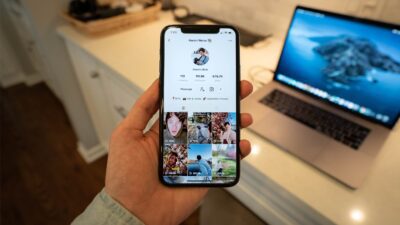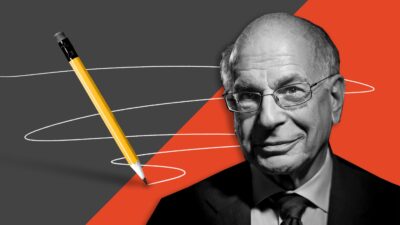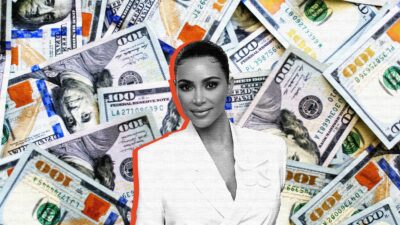Sandra Peter and Kai Riemer

Musk and the freedom to tweet (absolutely anything)
Now that Elon Musk is Twitter’s single biggest shareholder it’s not a question of if he wants to make changes to the way the platform operates but what changes he will want to push through, and how he intends to go about it.
Even Musk’s decision to accept, then reject, a seat on the Twitter board can only be read as someone who is still formulating his strategy, if not his plans. Musk did not decide to become Twitter’s largest shareholder (9.2%) to be a passive investor, but he might ultimately have found the rules of being a board member too restrictive for his activist approach. The next weeks and months ahead will reveal what he has in mind. A few things we can already anticipate.
Elon has decided not to join our board. I sent a brief note to the company, sharing with you all here. pic.twitter.com/lfrXACavvk
— Parag Agrawal (@paraga) April 11, 2022
For a start, let’s acknowledge that Musk is both one of Twitter’s most vociferous users (with 80 million followers) which also ensures that he can at times be a vehement Twitter critic.
Some of Musk’s Twitter musings are squarely in ‘thought bubble’ territory: His recently (Tweeted) poll asking if the platform should include an ‘edit’ function might sound great from a first-person user perspective: oops I made a mistake/changed my mind/received legal advice – so the ability to ‘fix’ my tweet solves everything, right? But tweets do not exist in isolation, they get re-tweeted, endorsed and re-posted over and over (if you are a power user like Musk).
So if someone else endorses your tweet and then you edit it later (as per Musk’s suggestion) to say something different, possibly even the exact opposite – how do you go about fixing the whole thread? If not, ‘fixing’ your own tweet will leave others saying something they possibly did not intend. Musk has not thought through how the systemic effects of such a ‘simple’ tweak would reverberate through the Twitter environment.
Up up and away with Musk
One Musk impact that showed up almost instantly was the 27% hike in Twitter’s share price following his share revelation. This was the biggest intraday increase since Twitter floated in 2013. Previously the power to move markets has been the domain of institutions – large, mainly faceless organisations with a mandate to be involved in such markets (banks, central banks, investment funds). The shift to powerful individuals having market-moving force is a phenomenon with implications not only for the financial markets but also for how democracy operates.
If you think this is too sweeping a statement let us remind you of the time in 2017 when the CEO of Cloudflare, an internet utility company, kicked a particularly vile neo-Nazi group off his service. CEO Matthew Prince said he acted in righteous anger. Prince’s memo to his staff said “I woke up in a bad mood and decided someone should not be allowed on the internet.”
What is equally astounding is what Prince wrote next: “No one should have that power.”
While it is possible to agree with Prince’s decision on the merits of that case, he also forewarned of the time when certain individuals in key positions can make arbitrary decisions that influence public infrastructure.
This is especially the case when these individuals – Facebook’s Mark Zuckerberg is another – are involved in social media platforms. These platforms have become the infrastructure for the way we conduct our public conversations, how we are informed, where we argue, debate and make up our mind. That is how we participate in our democratic public life.
The power of absolute free speech
One thing we know for certain about Elon Musk is that he proudly calls himself a “free speech absolutist.” What Musk seems to mean is there should be no limits (and no censorship) to what people can say and therefore what they may post on Twitter. Everyone should be able to say what they want. Remember Musk holds this view in the environment where sanctions have been put on companies promoting misinformation and disinformation about the war in Ukraine and where then-President Donald Trump was kicked off Twitter for posting misinformation about COVID-19. So, a major public health hazard.
We disagree with Musk.
Speech needs to be understood and appreciated holistically: it is about creating a space where a free and fair exchange of ideas can happen. And it does not always happen when anyone is allowed to blurt out anything they want. Spaces for the free and fair exchange of ideas need to be free from bullying, from the kind of noise – such as hate speech, that might prevent people from stating their opinions.
Content moderation is not the enemy of free speech, it is the basis for creating spaces that can support free speech.
Twitter is the digital equivalent of the town square and this space is already highly distorted to favour people with very big… platforms. What is more, the Twitter algorithm decides who gets to hear our messages and it favours people who already have a large following.
In Musk’s case the Twitter algorithm recognises that a Musk tweet will create significant engagement, which is good for Twitter. Hence Musk’s opinions as expressed on Twitter will be amplified by the platform’s algorithm. This is a distortion of the free and fair exchange of ideas, a phenomenon we call ‘algorithmic audiencing‘, whereby audiences of speech are decided by the algorithm serving platform goals that are external to the actual speech. This process poses a much larger interference in the free and fair exchange of ideas than content moderation since it is applied to all speech and not just some (particularly vile) messages.
My court case against Sussan Ley brought me into the public spotlight two years ago. Since then I’ve been constantly hit by absolutely vile racism. Here’s a tiny sample, because enough is enough and now I’m going to talk about it. pic.twitter.com/cocEf41Ezj
— anjali sharma (@anjsharmaaa) April 10, 2022
And for those libertarian absolutists out there – consider, if you will, the following real-life case study currently playing out on Twitter. For some background, Anjali Sharma is a 17-year old student in Sydney who is a prominent climate activist. Along with 7 other young people Sharma sued the Australian Minister for the Environment, Sussan Ley, arguing the Minister was in breach of her duty to protect young people from climate change. An initial ruling in their favour was overturned earlier this year.
Anjali happens to be one of the many Australians who were born overseas, which has made her a target of repeated and vile racism (and sexism) on Twitter, an experience likely alien to Elon Musk. A space conducive to the fair and free exchange of ideas must protect those whose voices are at risk of being silenced by personal attacks. If we want to hear all voices in public debate and have free speech for all, spaces of speech have to feel safe. Content moderation is not the enemy of free speech but its guarantor.
Dr Sandra Peter is the Director of Sydney Executive Plus and Associate Professor at the University of Sydney Business School. Her research and practice focuses on engaging with the future in productive ways, and the impact of emerging technologies on business and society.
Kai Riemer is Professor of Information Technology and Organisation, and Director of Sydney Executive Plus at the University of Sydney Business School. Kai's research interest is in Disruptive Technologies, Enterprise Social Media, Virtual Work, Collaborative Technologies and the Philosophy of Technology.
Share
We believe in open and honest access to knowledge. We use a Creative Commons Attribution NoDerivatives licence for our articles and podcasts, so you can republish them for free, online or in print.







